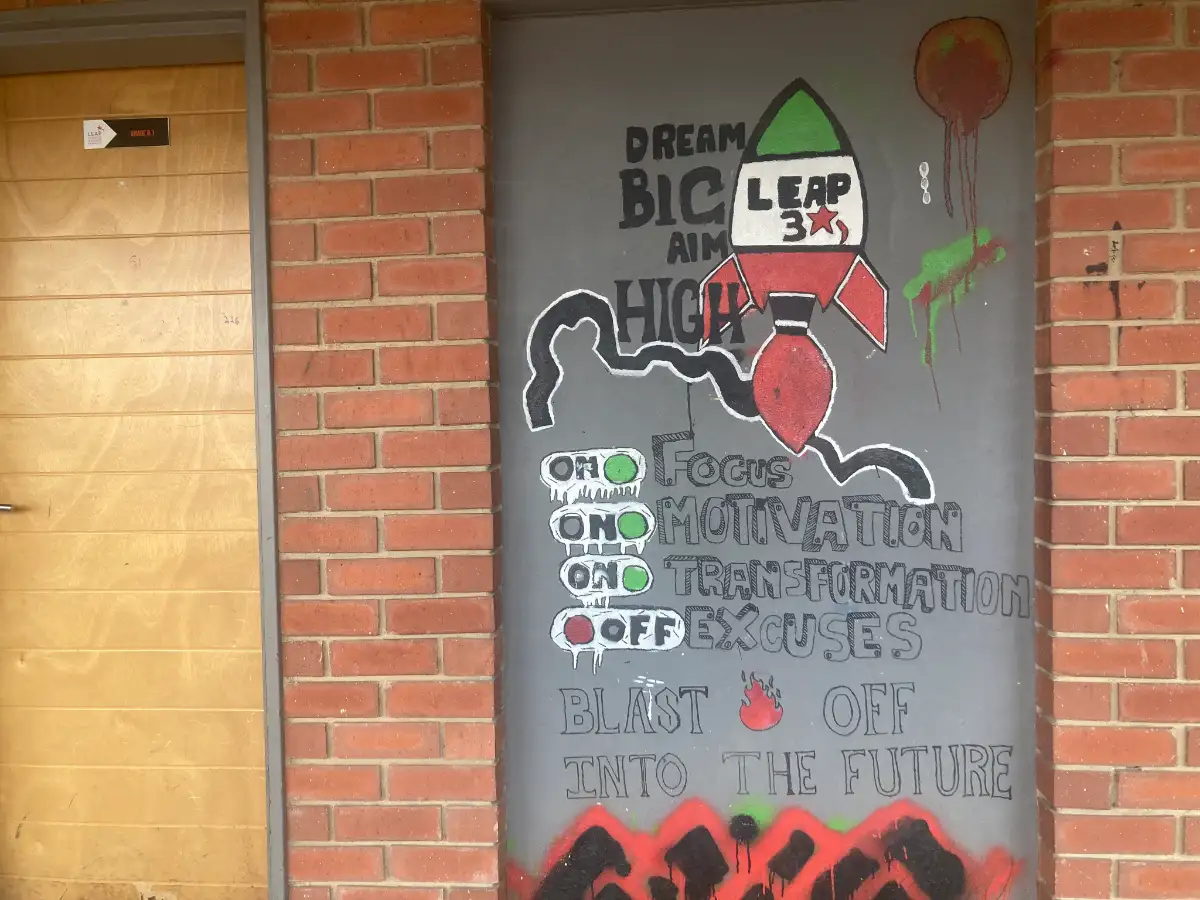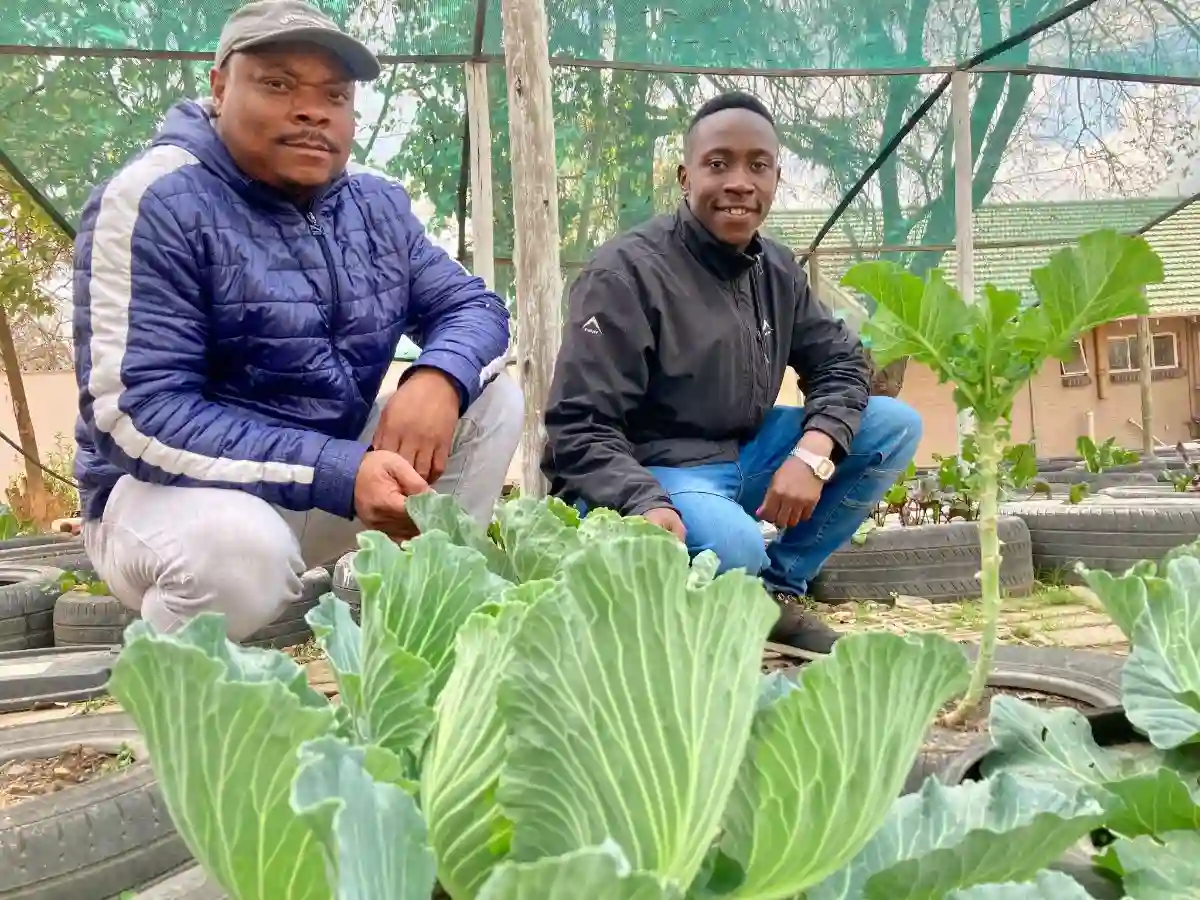Inside the classrooms of LEAP Maths and Science School in Linbro Park, Johannesburg, students are encouraged to speak up and say “I don’t understand” rather than staying silent. Outside, on the school’s grounds, a garden boasts everything from cabbage to spekboom cultivated by students who learn to take leadership and discover their potential in an after-school environmental club.
The school, which serves students from the neighbouring Alexandra township, is one of eight LEAP Maths and Science Schools for students from marginalised communities across South Africa. Since 2004, LEAP has made major strides in deepening social equity through offering high-quality, affordable education and holistic support across every aspect of its students' lives.
Key to their programme are Eco Clubs, which, despite limited resources, facilitate rich, interactive outdoor learning and doing with students.
Fixlocal spoke to Jansen Puthi, a dynamic young coordinator of Eco Clubs at LEAP schools across Gauteng, in Alex, Diepsloot and Ga-Rankuwa, a community near Pretoria. He speaks passionately about his students: “The drive is in them, the zeal is in them… They are change makers.”
What is the problem?
South Africa’s high school system leaves many gaps, especially for students from poorer communities and when it comes to environmental education.
For instance, many students lose interest in maths early on, convinced they’re “don’t have a maths brain,” Zonke Ngidi, the Director of the LEAP Institute, says. “Children are just passive in class and say ‘Yes, I understand’ even when they don’t, because of the fear that sits within them.”
The lack of resources compounds the problem. Many high schools, especially in townships and rural areas, do not have science labs. Lessons are taught from dense textbooks, making science feel abstract and disconnected from everyday life. Without opportunities for hands-on, practical learning, students are left without tools to understand, let alone address, the environmental issues directly shaping their futures.

How are they solving it?
At the heart of LEAP’s approach are the Eco Clubs, lively outdoor classrooms where students turn science into action. But these do more than spark environmental action; they also cultivate leadership, teamwork, and a sense of agency that carries into every aspect of students’ lives.
The clubs form part of LEAP’s broader innovative model that ignites motivation, curiosity and emotional intelligence. Building on the success of their schools, in 2023, the LEAP Institute was created to transform public schools across South Africa into hubs that grow future-ready students and strengthen entire communities. They make this happen across six key “levers”
Digital Literacy: Bridging the tech divide.
Ubuntu Maths: Building confidence in maths.
Living & Learning Labs: Outdoor science labs that connect theory to real life. The Eco Clubs form a core part of this lever.
Transformational Leadership: Empowering students to lead.
Consciousness Circles: Growing emotional intelligence.
Make Your Moves: A work-readiness program.
“We work with schools such that they become beacons of light,” says Ngidi – herself an example of the success of Leap Maths and Science schools - as a past student and graduate.
What makes it work?
An outdoor lab made of soil, recycled materials and curiosity
Puthi brings together students in the Eco Club, which engages them in hands-on learning and action. Students have created a vertical garden, planted indigenous crops, led anti-pollution campaigns, made ecobricks and created a worm farm.
The vegetable garden is a place to practice innovation; for instance, crops are grown in recycled tires to save water and protect them from soil that may be contaminated with harmful chemicals from nearby industry. The produce harvested in the garden supplements the meals at the school cafeteria, and in turn, students collect seeds from food scraps to plant again. “We use what we have. We improvise,” says regional garden coordinator Papiki Ramashaba.
The outdoor lab and environmental club feed back into the school's science curriculum with hands-on learning, and environmental stewardship animates those lessons learned in class.
Building on community assets
Rather than focusing solely on the problems, the success of LEAP’s model is rooted in enabling students and communities to recognise their own strengths. For example, Ngidi says, “The mentality that sits in our public schools is that because we don't have a science lab, that means we always sit in the deficit…but we say rather look at the asset that is the soil, the sunlight, the fact that we've got natural resources that allow us to do the experiments. We push children to be curious citizen scientists.”
 Papiki Ramashaba and Jansen Phuthi of the Leap Institute
Papiki Ramashaba and Jansen Phuthi of the Leap Institute
Partnerships
“When we talk about community development, we don’t want to be alone,” says Ngidi. As the LEAP Institute expands its work into new communities, it starts by inviting community policing forums, clinics and traditional leaders and more to participate. They also work with a wide range of partners in creating their education hubs.
Teaching for career readiness
Critical to LEAP’s success is supporting young people to be future-ready, especially through a programme that supports students to explore career paths and develop the skills needed to succeed after school. Puthi is a graduate of LEAP’s twelve-month work readiness programme. He says, “In the communities we are coming from, it’s not easy to find your way out. But when you find opportunities like this, you need to take them at hand.” Today, Jansen has the digital literacy, organisation, leadership and other skills that enable him to excel in his job as Eco Club coordinator.
Get Involved
You can contact Jansen Phuthi on 0834346133 to support or get involved with the LEAP Institute's Eco Clubs.
Acknowledgements
Author: Maru Attwood
Photos: LEAP Institute